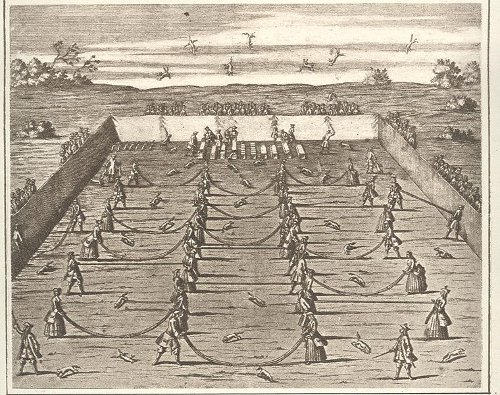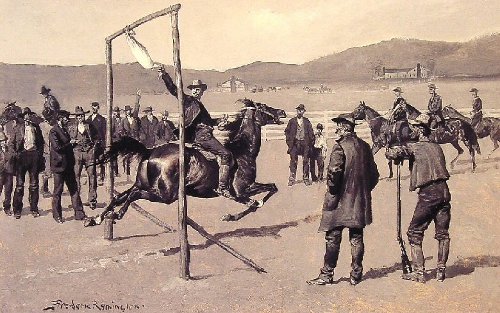Proper technique for examining an undergraduate, from a letter from Lewis Carroll to Henrietta and Edwin Dodgson, Jan. 31, 1855:
It is the most important point, you know, that the tutor should be dignified and at a distance from the pupil, and that the pupil should be as much as possible degraded.
Otherwise, you know, they are not humble enough.
So I sit at the further end of the room; outside the door (which is shut) sits the scout; outside the outer door (also shut) sits the sub-scout: half-way downstairs sits the sub-sub-scout; and down in the yard sits the pupil.
The questions are shouted from one to the other, and the answers come back in the same way — it is rather confusing till you are well used to it. The lecture goes on something like this:–
Tutor. What is twice three?
Scout. What’s a rice tree?
Sub-Scout. When is ice free?
Sub-sub-Scout. What’s a nice fee?
Pupil (timidly). Half a guinea!
Sub-sub-Scout. Can’t forge any!
Sub-Scout. Ho for Jinny!
Scout. Don’t be a ninny!
Tutor (looks offended, but tries another question). Divide a hundred by twelve!
Scout. Provide wonderful bells!
Sub-Scout. Go ride under it yourself!
Sub-sub-Scout. Deride the dunder-headed elf!
Pupil (surprised). Who do you mean?
Sub-sub-Scout. Doings between!
Sub-Scout. Blue is the screen!
Scout. Soup-tureen!
“And so the lecture proceeds. Such is Life.”




